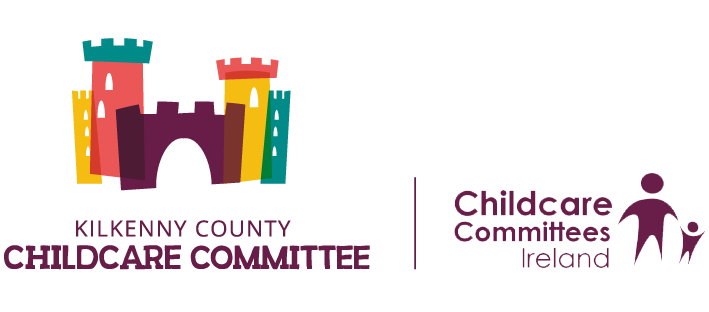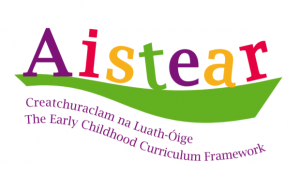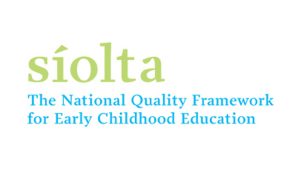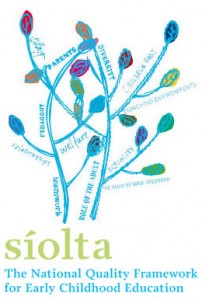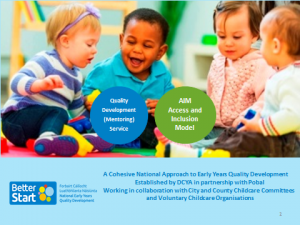Aistear is based on 12 principles of early learning and development. These are presented in three groups:
- The first group concerns children and their lives in early childhood:
the child’s uniqueness, equality and diversity and children as citizens
- The second group concerns children’s connections with others:
Relationships, Parents, family and community, and The adult’s role
- The third group concerns how children learn and develop:
Holistic learning and development, Active learning, Play and hands-on experiences, Relevant and meaningful experiences, Communication and language, and The learning environment.
For further information on Aistear’s principles of early learning and development visit the Aistear website.
